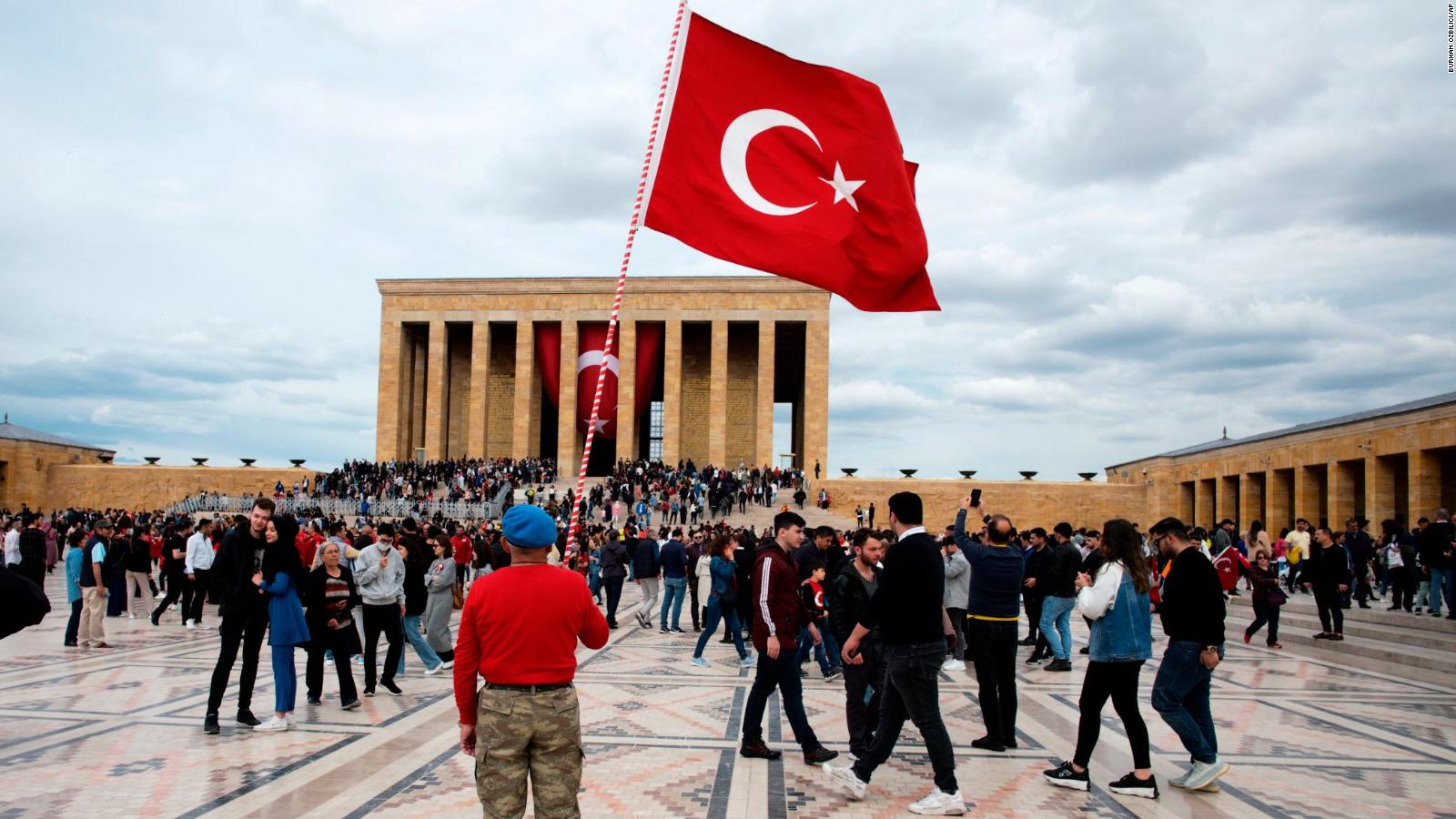Mardin, a city where the past lives in harmony with the present 1:03
Abu Dhabi, United Arab Emirates (CNN) --
Turkey is sick of being associated with the turkey, better known as a symbol of the American holiday of Thanksgiving, by its English name Turkey.
On Thursday, the United Nations recognized the country's name change to Türkiye, pronounced /tur-qui-ye/, in a decision Foreign Minister Mevlut Cavusoglu said would "increase the brand value" of the country.
"The main reason Turkey is changing its name is to remove the association with the bird," said Sinan Ulgen, chairman of the Istanbul-based think tank EDAM.
"But also, the term is used in colloquial language to denote failure."
For President Recep Tayyip Erdogan, who will run for reelection next year, the new name expresses "the culture, civilization and values of the Turkish nation in the best way."
International organizations are now required to use the new name, but it won't happen overnight for the general public, Ulgen told CNN.
"It will probably take many years for the general international public to switch from Turkey to Türkiye."
advertising
ANALYSIS |
Why is Turkey causing problems for Finland and Sweden in their NATO entry process?
It's not the first time the nation has tried to change its name, he said.
A similar attempt was made in the mid-1980s under Prime Minister Turgut Ozal, but it never caught on, he said.
It is possible that there are political motivations behind the move, since the Turks will return to the polls next June in the midst of a severe economic crisis.
It is "another strategy put in place by the Turkish government to reach nationalist voters in a crucial year for Turkish politics," said Francesco Siccardi, director of programs at think tank Carnegie Europe.
The timing of the name change is "crucial" for next year's election, he said.
"The decision on the name change was announced last December, when President Erdogan was losing in all opinion polls and the country was going through one of the worst economic crises in the last 20 years."
Erdogan's position in the polls has dropped considerably over the years.
Polls from late last year show support for the ruling AK party at around 31-33%, according to Reuters, up from 42.6% in the 2018 parliamentary election.
However, Ulgen said the name change was more of a rebranding strategy to boost the country's international standing rather than a pre-election stunt.
Turkey's foreign trade deficit rose 98.5% year-on-year to $6.11 billion in April, Reuters reported, citing the Turkish Statistical Institute.
Annual inflation shot up to 73.5% last month, a 22-year high.
Analysts say that in times of crisis, the president tends to resort to populist measures to divert attention from internal problems.
The economic turmoil, which has already sparked protests, has been a headache for the government.
"The new name will distract the domestic public from more concrete and urgent problems and offer President Erdogan another argument for his defense of a stronger and more traditional Turkey," Siccardi said.
In another populist move in 2020, Erdogan issued a decree to convert the historic Hagia Sophia Byzantine Museum into a mosque.
Erdogan orders historic Hagia Sophia to be converted back into a mosque in Istanbul
"In the absence of concrete policies to handle the country's economic and political problems, Erdogan seeks salvation in populist identity politics," political analyst Seren Korkmaz wrote of the move at the time.
"He pushes Turkish nationalism and Islamism and attacks opposition figures."
The new name also has symbolic value, as it was adopted in 1923 after the new nation emerged from the ashes of World War I.
Its adoption worldwide would "consolidate Erdogan's place in Turkish history alongside the founding father of the republic, Mustafa Kemal Ataturk," Siccardi said.
Recep Tayyip ErdoganTurkey








